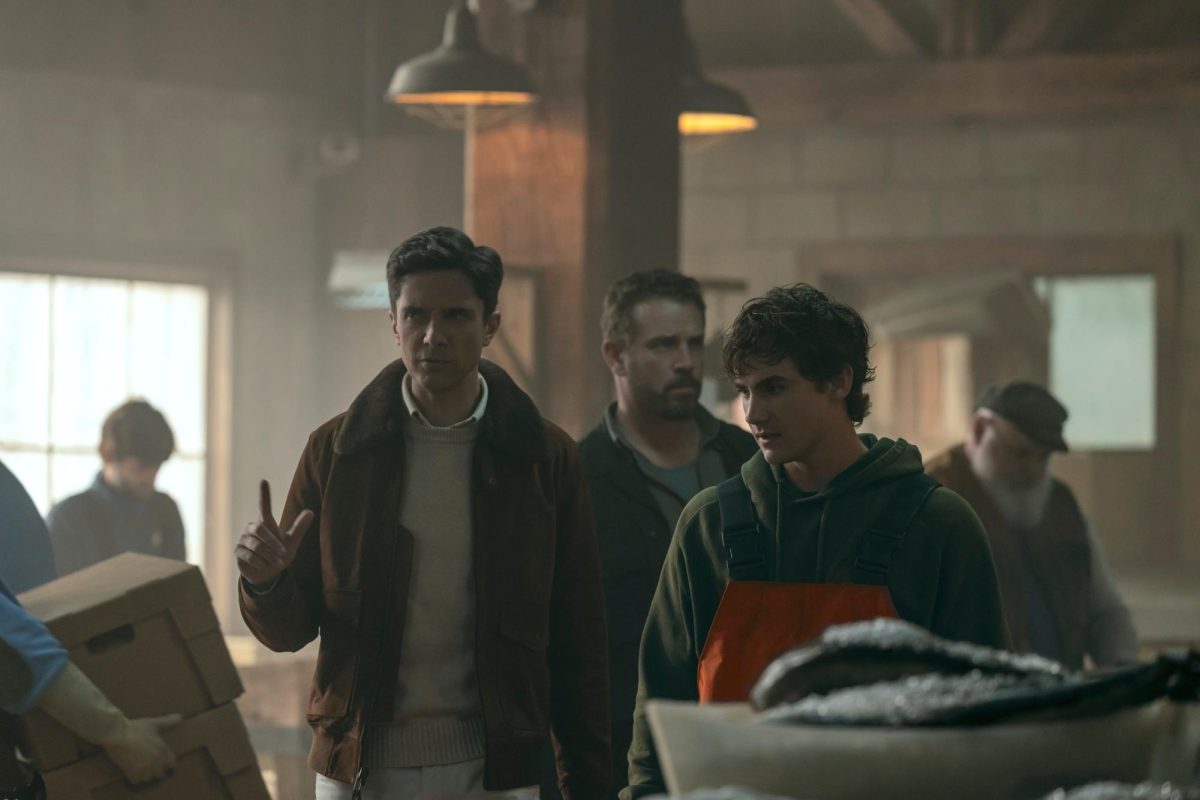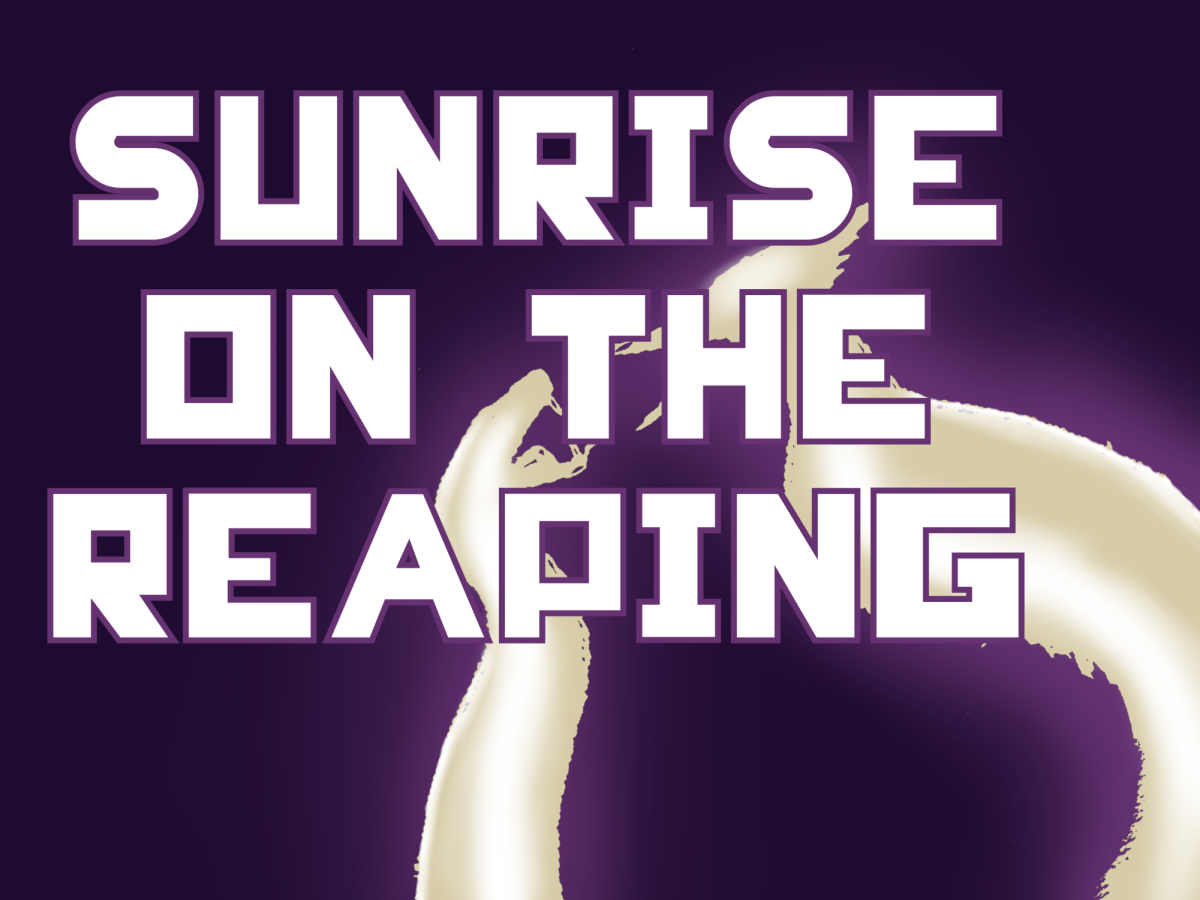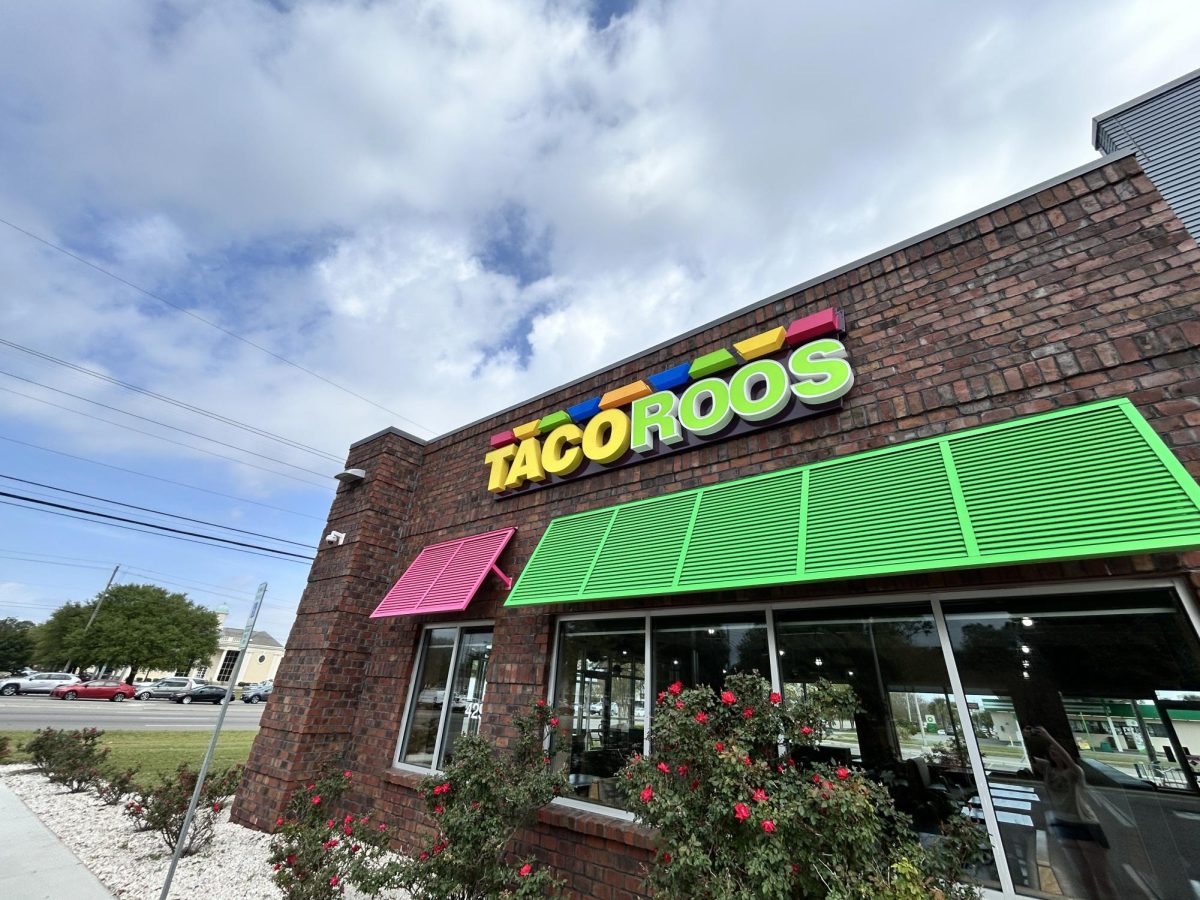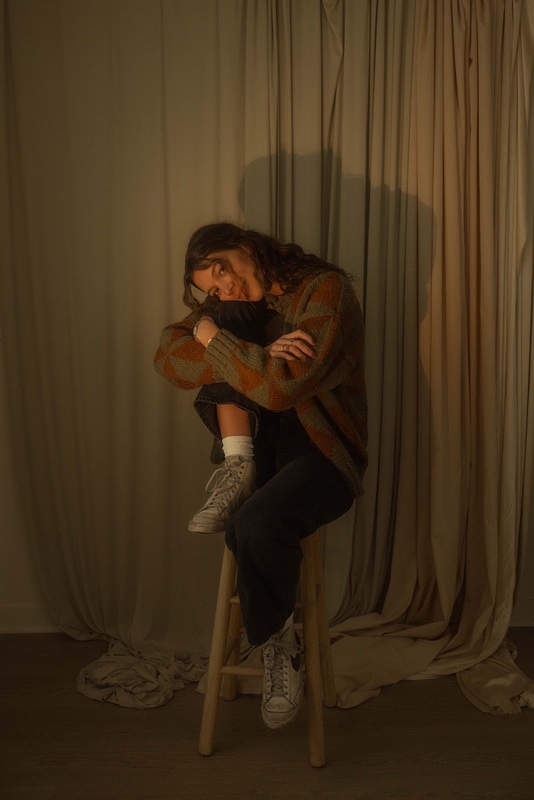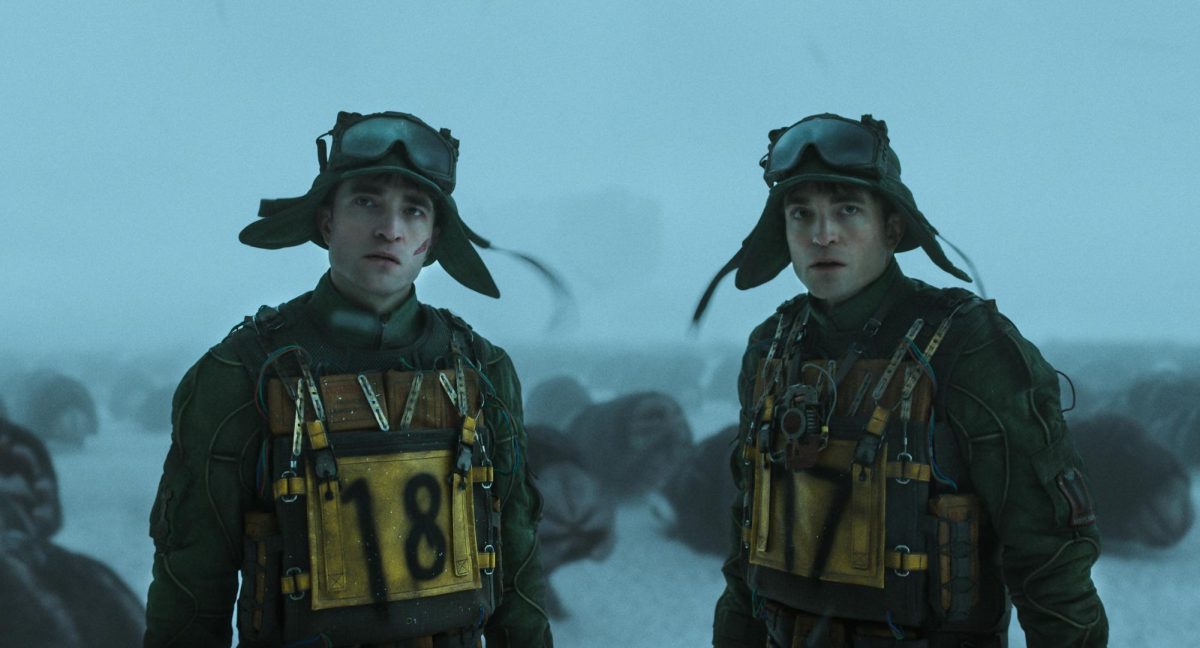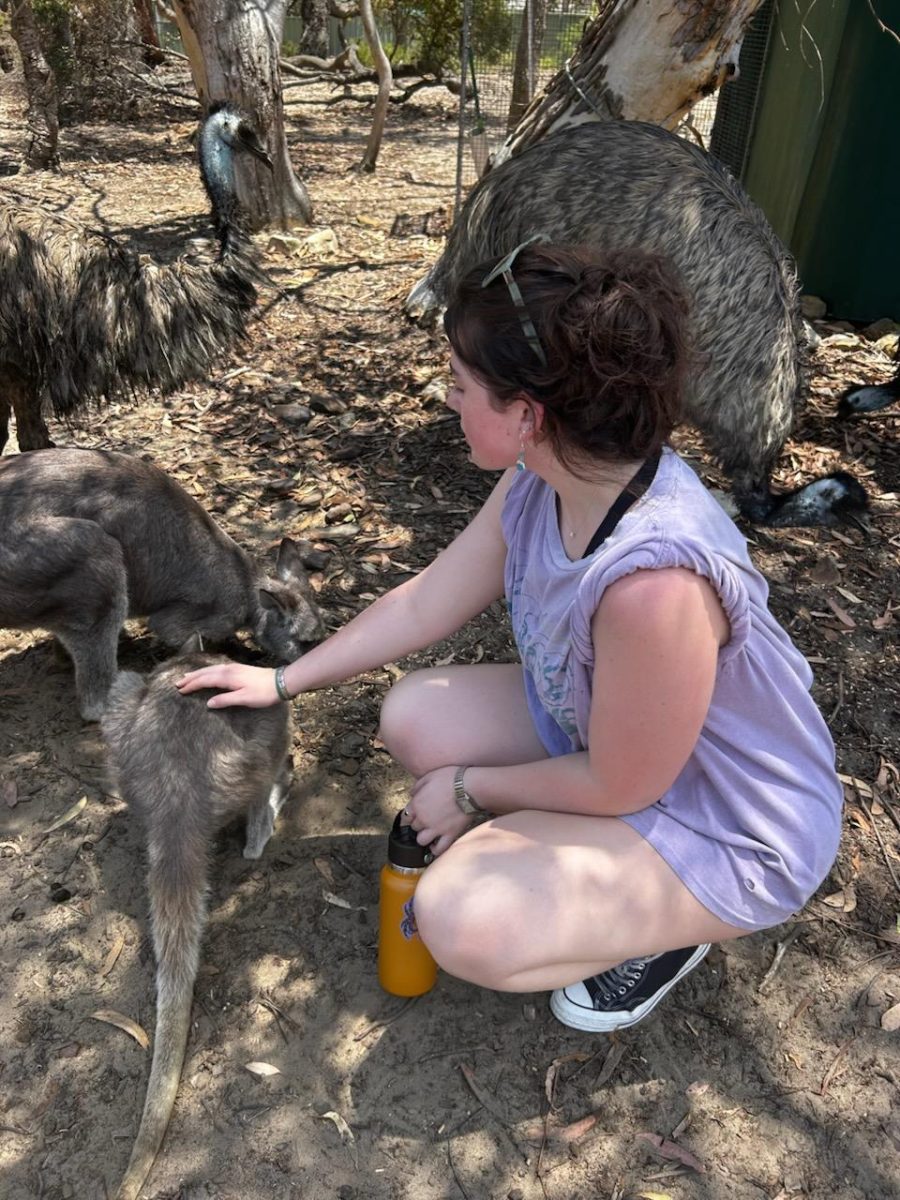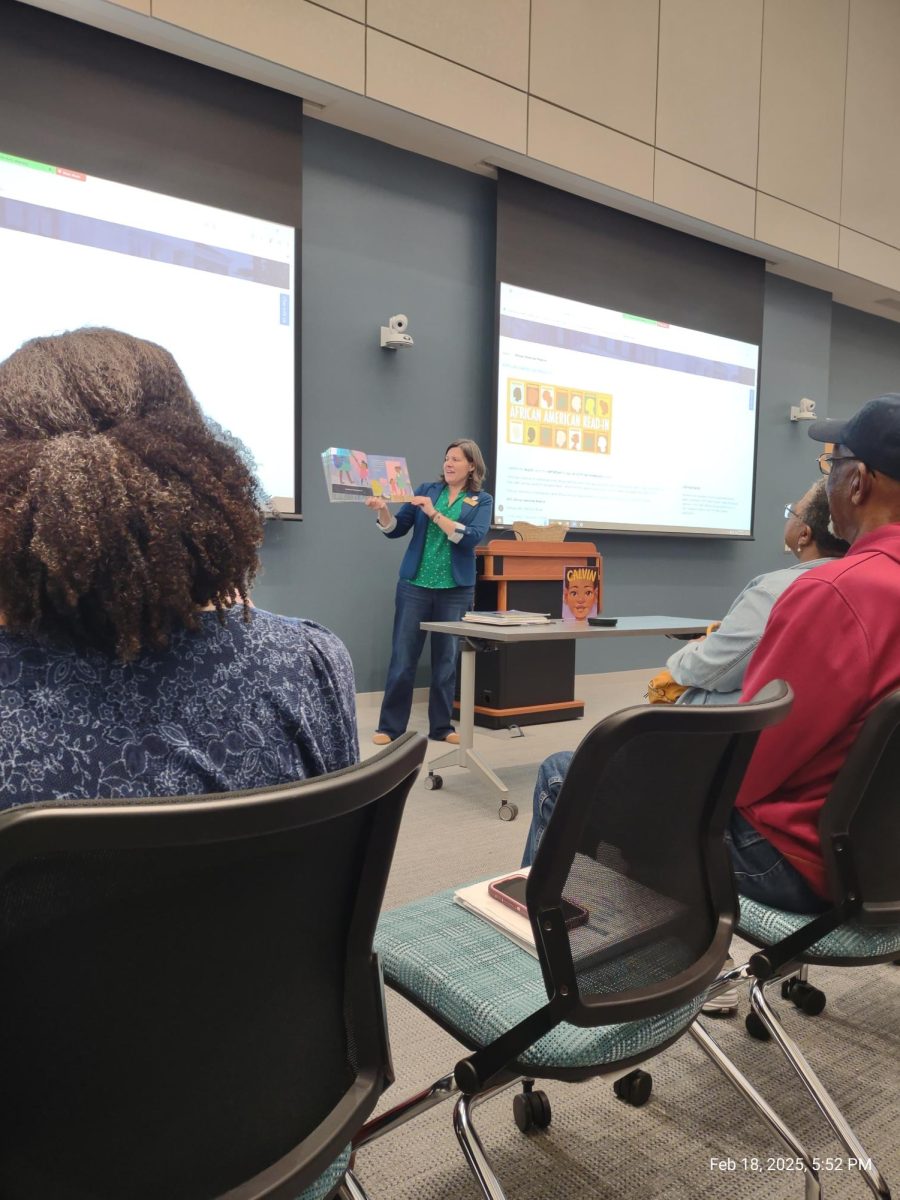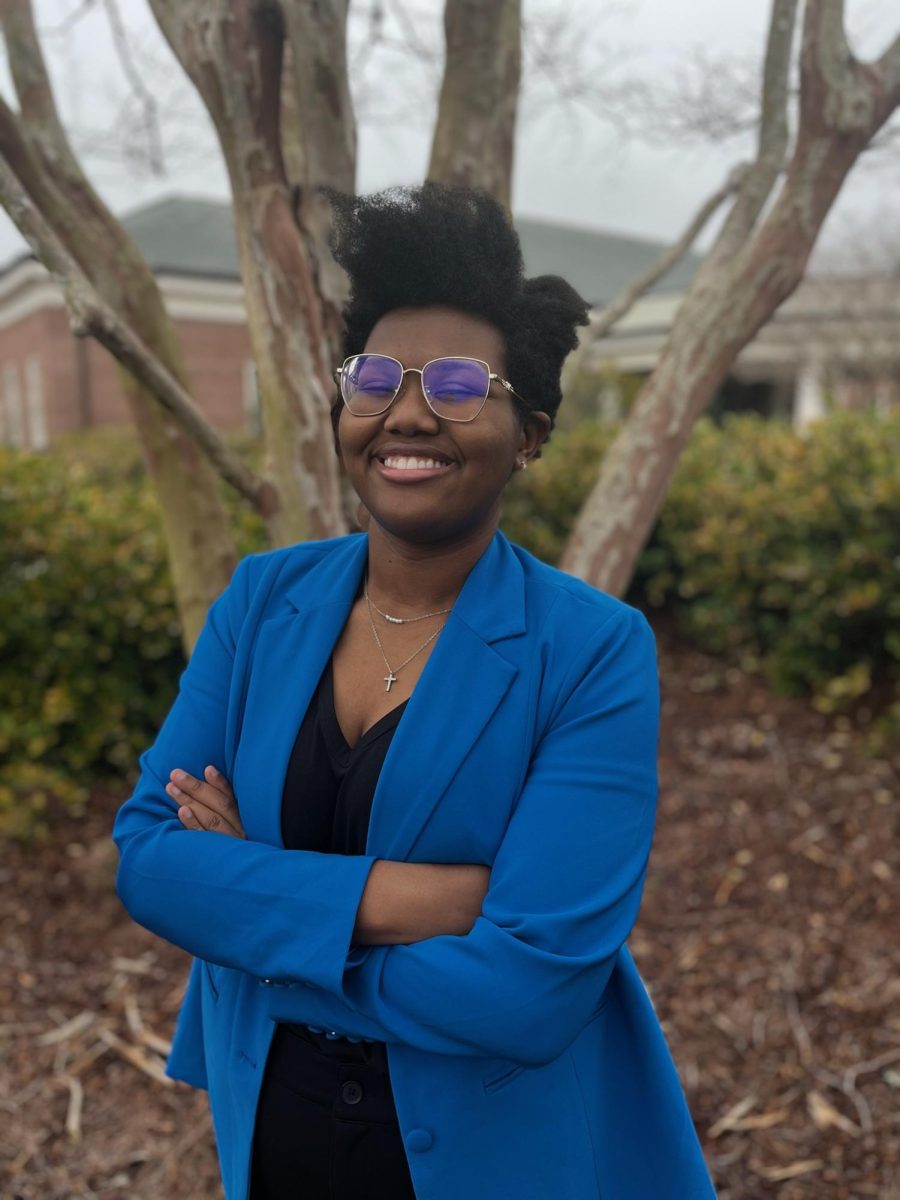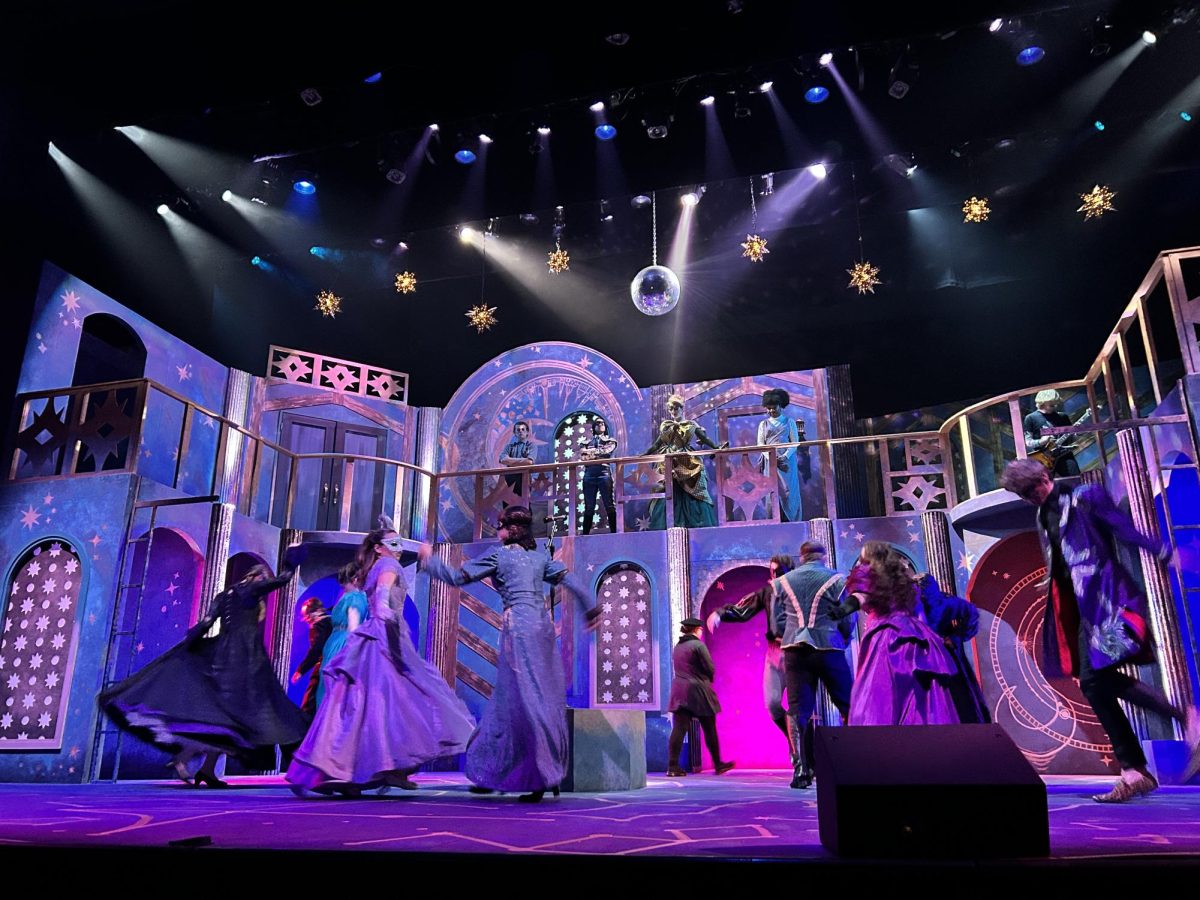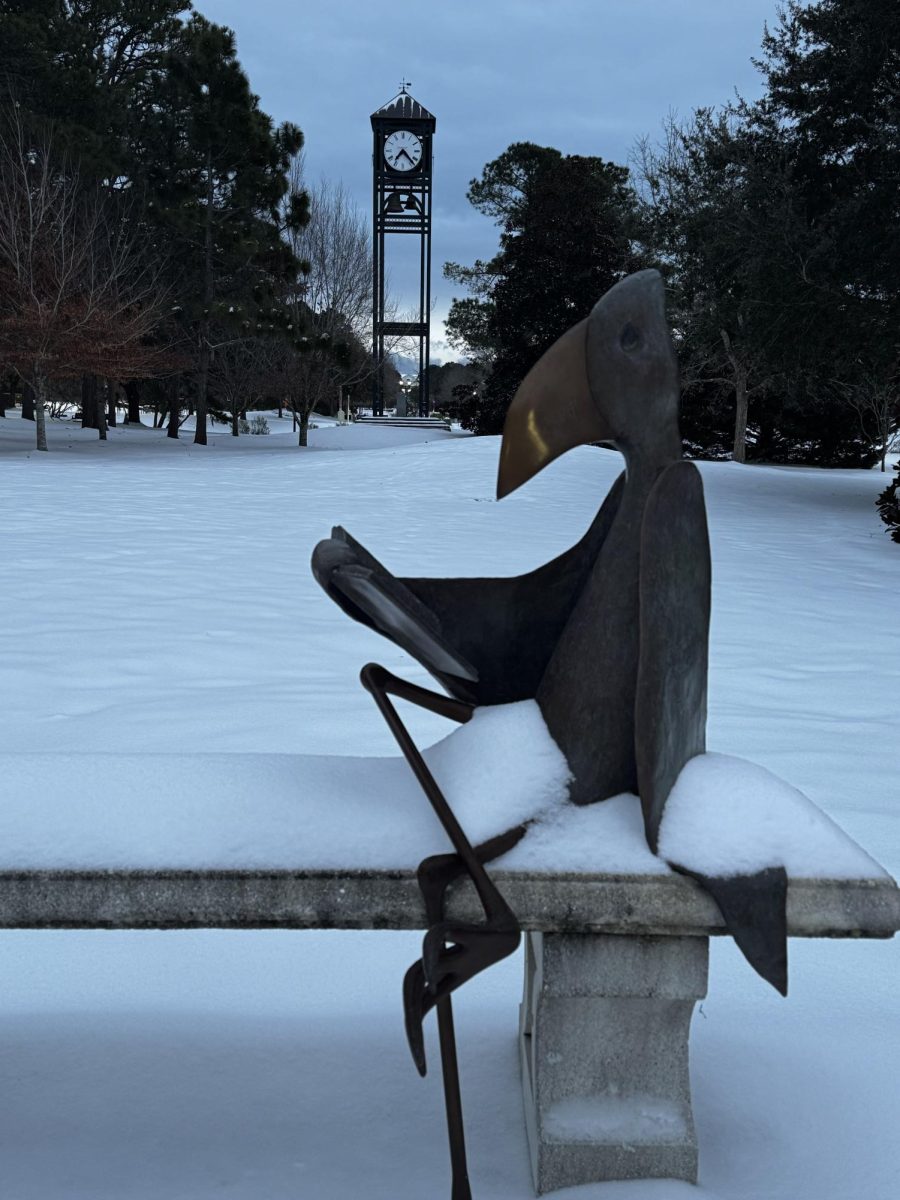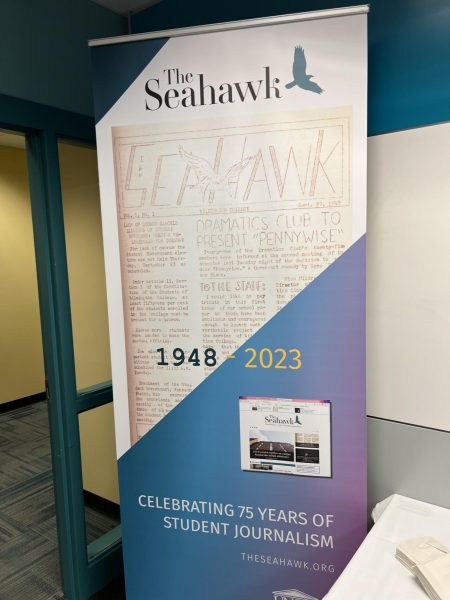
The Seahawk celebrated its 75th Anniversary at UNCW on Sept. 27. Being only one year younger than the university itself, the publication is the oldest student media group on campus. The Seahawk was lucky enough to sit down with Bobby Parker, Robert Brown and Tim Bass—all former writers and editors as they reminisced and commented on their time with the publication.
The digital newspaper that we are familiar with today came from thousands of stacks of newspapers, with stories ranging all the way from desegregation to the Lynyrd Skynyrd concert at Hanover Hall. Robert Brown served as the Associate Editor for The Seahawk from 1976 to 1978, where he described the process of what making the paper used to look like. Brown explained that the team’s typist would compile all the stories together and put them into a machine, which would then print the typical newspaper format into columns.
“We would take those columns and we’d run them through a wax machine. Then, we’d have to do the layout on the layout sheet. So, the production was way different than it is now,” Brown said.
According to Brown, the production process involved editors and writers staying up late, sometimes until two or three in the morning to make sure the newspaper and photos were ready to be printed. The finished product would then be driven on a bus to Whiteville, N.C., for proper printing at the Whiteville News Reporter.
“I remember one time we missed the bus, and I drove the pages to Whiteville myself,” Parker said.
After his time at UNCW, Brown began a job as an educational specialist in Fort Fisher Aquarium’s communications department. His position involved editing and public relations. Afterwards, he became the editor of the Carolina Cargo Magazine for the North Carolina State Ports Authority.
“By that time, I had moved ahead. I’ve done layout on PC’s, Apple, layout sheets. It [The Seahawk] was instrumental in getting me my future jobs,” Brown stated.
Bass, another reporter and photographer from The Seahawk, sat down with us to talk about his time with the organization from 1977 to 1978. He is still around campus today, serving as the BFA Coordinator, Internship Coordinator and Senior Lecturer in Creative Nonfiction/Fiction for the UNCW Creative Writing Department. Bass explained that he believed joining The Seahawk was the expected thing for him to do, as he wanted to pursue a career in journalism.
Parker joined The Seahawk in 1976 as a freshman and served as Editor-in-Chief of The Seahawk for a subsequent two and a half years after.
“We became a watchdog for the students,” Parker said. “In that, we were at every student government meeting; writing stories, covering what they were doing.”
He began his time here by writing a political column, “Byline,” for each print edition. Parker majored in English with hopes of having a career in journalism. After his time at UNCW, he completed his master’s in journalism at UNC Chapel Hill, and began working for Wilmington’s StarNews.
Bass stated that what he loved most about student media was the ease of joining and becoming a part of something.
“People just kind of showed up in James Hall and said ‘Hey, we want to be on the staff.’” Though The Seahawk’s home is now the Student Media Center in Fisher Student Center, it used to be located in James Hall, where the Office of Admissions resides.
Bass clarified that at the time, there were no staff or faculty members supporting the publication, so it was up to the students to have that responsibility of being dependable. Parker stated one specific story he remembers was about a new chairman who was hired for the Department of Creative Arts.
“In December 1978, 18 members of the faculty – all but one – signed a petition saying that he [chairman] had created a ‘demoralizing and negative’ atmosphere for the department,” Parker said.
After reaching out to a few faculty members who signed the petition, and who all declined, Parker was permitted to review the petition by communications and speech instructor Betty Jo Welch.
“That was kind of a story I broke, and I was proud of that. And then, once we published our story, it got picked up by the StarNews and became a community news story.”
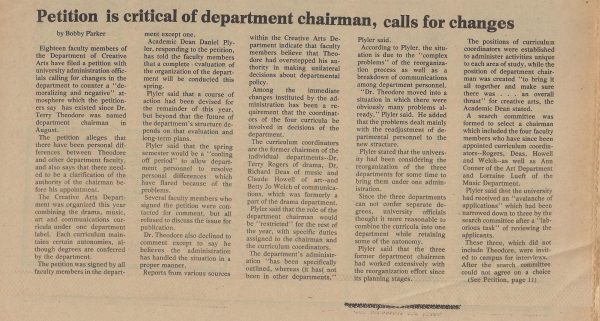
“People started to respect the paper under Bobby’s leadership, because he cared – he really cared about what was going on- and he was a real journalist and understood what real journalism could do,” Brown spoke fondly of his friend.
In April of 1978, The Seahawk published an April Fools paper called “the sea crock.” Writers by the names of “Ars Poetica” and “H.E. Welfare” contributed to the story, while the entire team shared a few chuckles putting the pieces together for the student body.
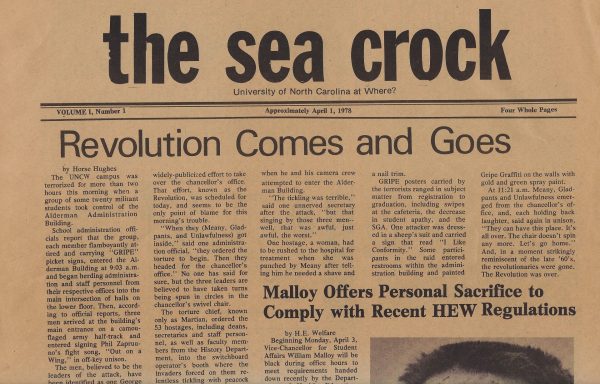
Bass completed a story in which The Seahawk created a fake SGA candidate running for office. The goal of the piece, Parker stated, was to highlight how many students were not aware of campus affairs. The candidate, a Phil Zapruuno, got 31% of the vote without even existing.
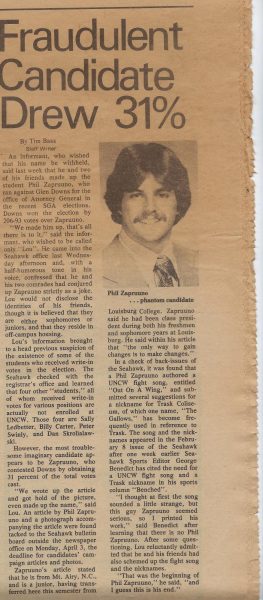
“What I remember about that time, and Robert already touched on it and is so important, was the friendships we built. I lived off campus that year, and were it not for The Seahawk, I would have had no social life. These were the bonds of friendship that I made,” said Bass. “Forty-five years later, and we’re still friends. And by the way, Robert looks exactly the same today as he did in 1977. It is ridiculous that the man has not aged.”


